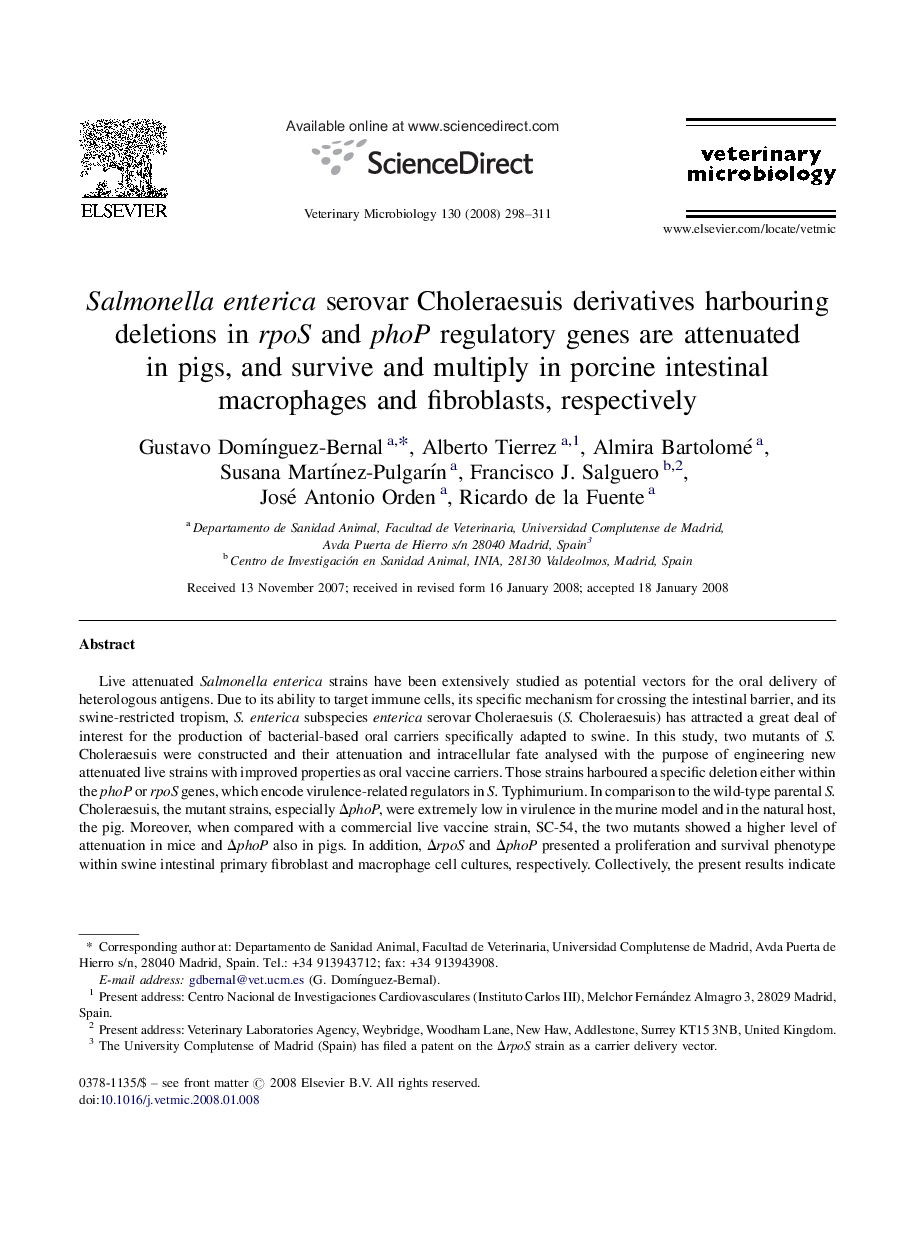| Article ID | Journal | Published Year | Pages | File Type |
|---|---|---|---|---|
| 2468692 | Veterinary Microbiology | 2008 | 14 Pages |
Live attenuated Salmonella enterica strains have been extensively studied as potential vectors for the oral delivery of heterologous antigens. Due to its ability to target immune cells, its specific mechanism for crossing the intestinal barrier, and its swine-restricted tropism, S. enterica subspecies enterica serovar Choleraesuis (S. Choleraesuis) has attracted a great deal of interest for the production of bacterial-based oral carriers specifically adapted to swine. In this study, two mutants of S. Choleraesuis were constructed and their attenuation and intracellular fate analysed with the purpose of engineering new attenuated live strains with improved properties as oral vaccine carriers. Those strains harboured a specific deletion either within the phoP or rpoS genes, which encode virulence-related regulators in S. Typhimurium. In comparison to the wild-type parental S. Choleraesuis, the mutant strains, especially ΔphoP, were extremely low in virulence in the murine model and in the natural host, the pig. Moreover, when compared with a commercial live vaccine strain, SC-54, the two mutants showed a higher level of attenuation in mice and ΔphoP also in pigs. In addition, ΔrpoS and ΔphoP presented a proliferation and survival phenotype within swine intestinal primary fibroblast and macrophage cell cultures, respectively. Collectively, the present results indicate that the ΔrpoS and ΔphoP strains of S. Choleraesuis gather adequate features to be potential candidates for vaccine vectors for the specific delivery of heterologous antigens adapted to pigs.
